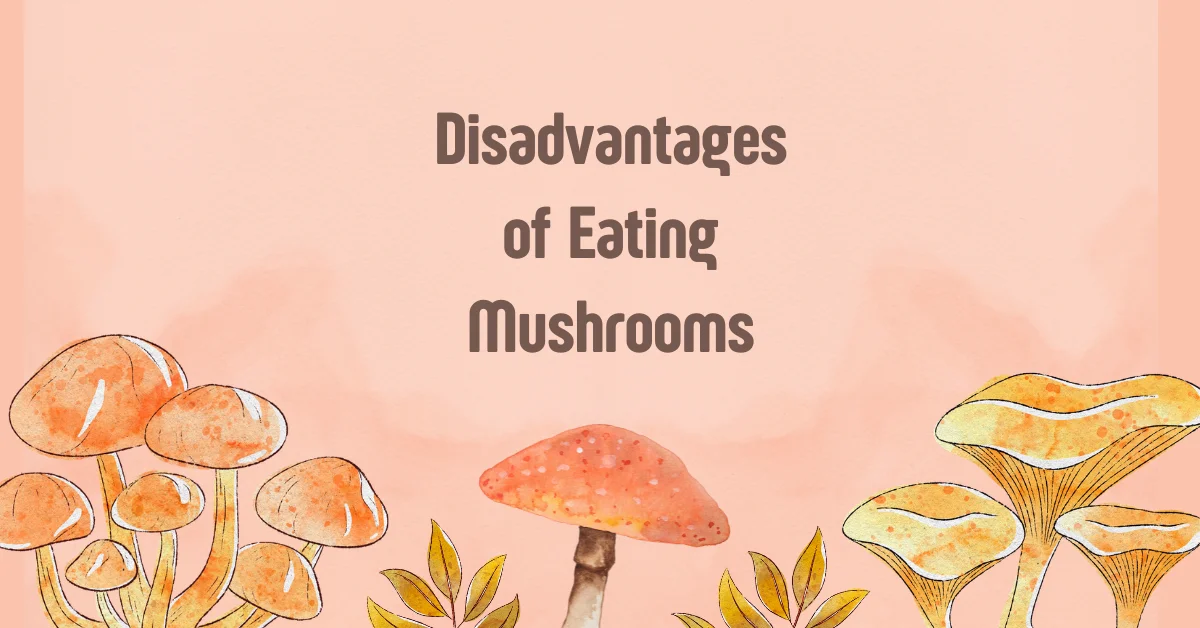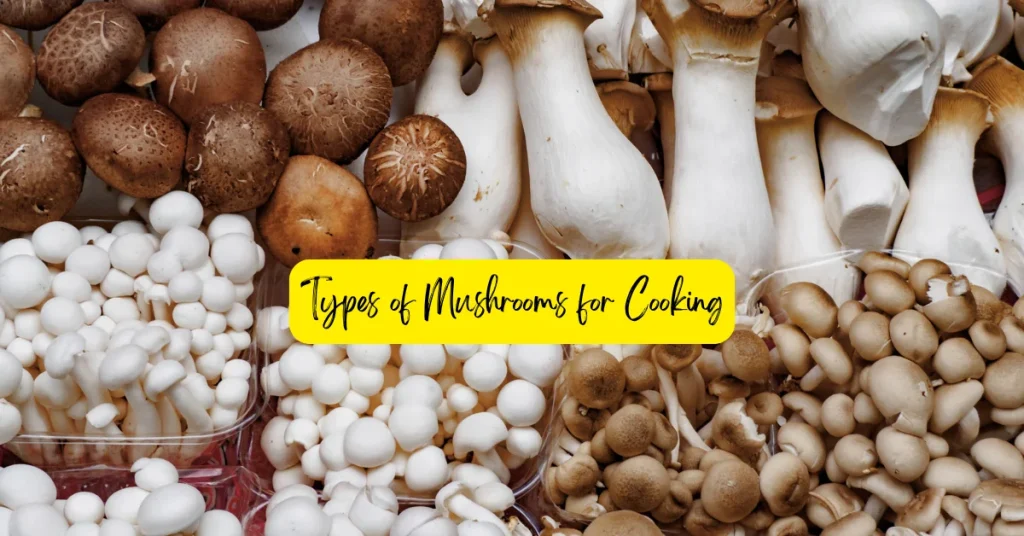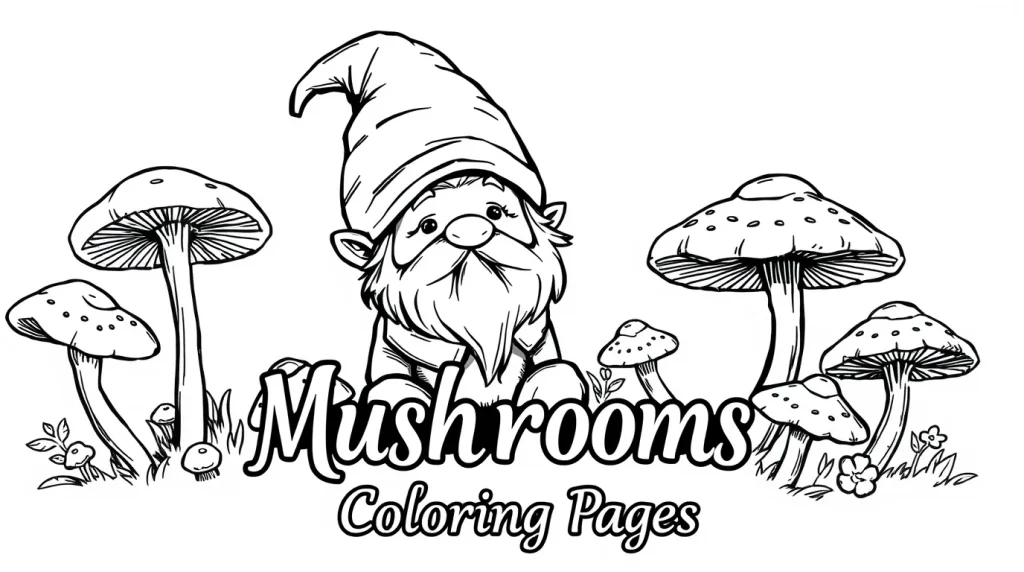15 Disadvantages Of Eating Mushrooms

Mushrooms have long been a staple in cuisines worldwide, enjoyed for their unique flavor, versatility, and health benefits. Whether sautéed as a topping for your favorite dish, blended into a creamy soup, or served as a meat substitute in plant-based diets, mushrooms hold a special place in many kitchens. However, are there any disadvantages of eating mushrooms?
Yes, mushrooms come with their share of risks and potential downsides. In this post, we’ll explore the disadvantages of eating mushrooms.
Allergic Reactions
Some individuals are allergic to mushrooms, and their consumption can trigger a variety of symptoms. Allergic reactions can range from mild skin irritations, such as rashes or itching, nasal congestion, hives to severe respiratory problems, sudden blood pressure drop and anaphylaxis (a potentially life-threatening allergic reaction that requires immediate medical attention). Even cooked mushrooms can cause headaches, flushing, or digestive discomfort.
Mushroom allergies are caused by exposure to mushroom spores. These tiny particles enter the body when mushrooms are eaten, spores are inhaled. Another strong reason of mushroom allergies are connected to mold allergies. Usually, physicians do two types of tests for allergy reactions, skin prick test and blood test.
When to visit a Doctor? When you feel discomfort or difficulty in breathing and rapid heartbeat, its time to visit doctor immediately.
Toxin Risks
Wild mushrooms can pose serious health risks due to their potential toxicity. Species such as the Death Cap (Amanita phalloides) and Destroying Angel (Amanita bisporigera) contain deadly toxins. Consuming even a small amount of these mushrooms can lead to symptoms like nausea, vomiting, liver failure, or even death. Unfortunately, toxic mushrooms often resemble edible mushrooms and they make it easy for foragers to make mistakes. An expert guidance for the identification of mushrooms is necessary.
Digestive Problems
Besides culinary versatility and health benefits, mushrooms can cause digestive discomfort in some people. Mushrooms are rich in fiber, which can be difficult to digest for people with sensitive stomachs or irritable bowel syndrome (IBS). People experience bloating, gas, stomach pain, or diarrhea after consuming mushrooms. Those with pre-existing gastrointestinal issues may find mushrooms particularly hard to tolerate.
High Purine Content
Mushrooms are not extremely high in purines compared to meats and seafood, they are moderate-purine food. When consumed, purines are broken down into uric acid in the body. Individuals with gout or dealing with high uric acid levels might need to limit their consumption.
Pesticide Residue
Commercially grown mushrooms are treated with pesticides to prevent pest infestations and diseases. These pesticides can leave residues on the mushrooms, which may pose health risks. Long-term exposure to pesticide residues has been linked to hormonal imbalances, developmental issues, and even cancer. It is better to choose the organic mushrooms.
Heavy Metal Contamination
Mushrooms have a natural ability to absorb substances from their environment, including heavy metals like lead, arsenic, cobalt, mercury, and cadmium. Wild mushrooms harvested from polluted areas are particularly at risk of heavy metal contamination. Consuming such mushrooms can lead to long-term health problems, including damage to the kidneys, liver, and nervous system. It is necessary to source mushrooms from reliable and safe locations.
A research paper published in 2024 wherein it was studied to see heavy metals in edibles mushrooms in china. “Most individual pollution index values were at a safe level, indicating that the overall pollution level of edible mushrooms is low”.
Read: Analysis of heavy metal characteristics and health risks of edible mushrooms
Hallucinogenic Effects
Psychoactive mushrooms, referred to as “magic mushrooms,” contain compounds like psilocybin & psilocin that can alter perception and mood. While some people use these mushrooms recreationally. Improper or excessive use can lead to confusion, psychological distress, anxiety, paranoia, or even mental health issues.
Mushrooms containing psilocybin or psilocin are classified as illegal substances in many countries, including the United States, the United Kingdom, and Australia.
Risk of Mislabelling
Mislabeling can lead to accidental consumption of toxic varieties, posing serious health risks. Even experienced foragers sometimes mistake dangerous mushrooms for safe ones.
Foodborne Illness
Mushrooms are highly perishable and require proper storage to remain safe for consumption. Improperly stored mushrooms can harbor harmful bacteria such as Listeria monocytogenes or Salmonella, leading to foodborne illnesses. Symptoms of illnesses include nausea, vomiting, diarrhea, and abdominal pain. Ensure that mushrooms are fresh, refrigerated, and properly stored & cooked.
Additive Sensitivity
Processed mushrooms, such as canned or pickled contain preservatives and additives to extend their shelf life. These substances can cause allergic reactions or digestive discomfort in sensitive individuals. Moreover, the high sodium content in some preserved mushrooms can contribute to hypertension.
Nutrient Imbalance
Mushrooms are a good source of protein, vitamins, and minerals, but they lack essential nutrients like Vitamin C, fats, omega-3 fatty acids and other micronutrients. It is not a good choice to rely only on mushrooms as a standalone source of nutrition. For optimal health, mushrooms should be consumed as part of a varied and balanced diet.
Cost Issues
Exotic mushroom varieties such as truffles, morels, and chanterelles are highly sought after but come with a hefty price tag. Their high cost makes them inaccessible for many people and impractical for regular consumption. Even more affordable varieties, like shiitake, oyster and chestnut mushrooms, can be expensive compared to other protein or vegetable sources.
Mental Illness
Some mushrooms, especially psychedelic mushrooms containing compounds like psilocybin, can affect mental health. Magic mushrooms can cause fear and panic attacks.
Taste Sensitivity
Not everyone enjoys the taste and texture of mushrooms. Their earthy flavor and chewy consistency can be unpleasant for some people.
Not Suitable for Everyone
Mushrooms may not be suitable for individuals with certain dietary restrictions. For instance, their high potassium content makes them unsuitable for people with kidney disorders. Mushrooms are high in certain types of carbohydrates known as FODMAPs (Fermentable Oligo-, Di-, Mono-saccharides and Polyols), which can cause digestive discomfort in individuals with IBS (Irritable Bowel Syndrome). People on a low-FODMAP diet often avoid mushrooms to prevent bloating, gas, or diarrhea.
Conclusion
Mushrooms are widely regarded as a nutritious and versatile food but they are not without their downsides. From potential allergens and dietary concerns, there are several reasons why mushrooms may not be suitable for everyone. By exercising caution, choosing high-quality edible mushrooms, and consuming them in moderation, it’s possible to enjoy their benefits while minimizing the risks.

Hi, I am Nazish Arif. I am a Food Scientist. On this Blog, I do share insights about Chestnut Mushrooms, Mushrooms Recipes, along with information of other mushrooms as well.






